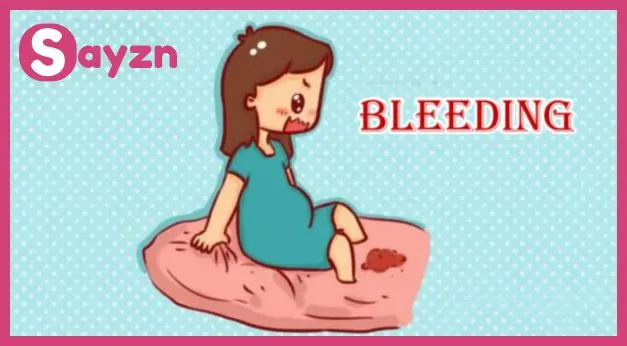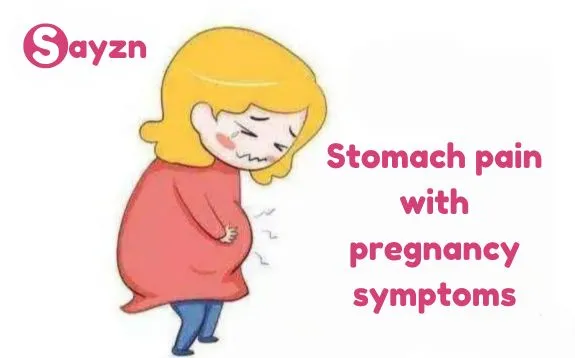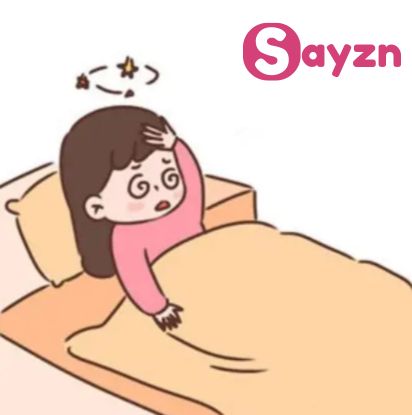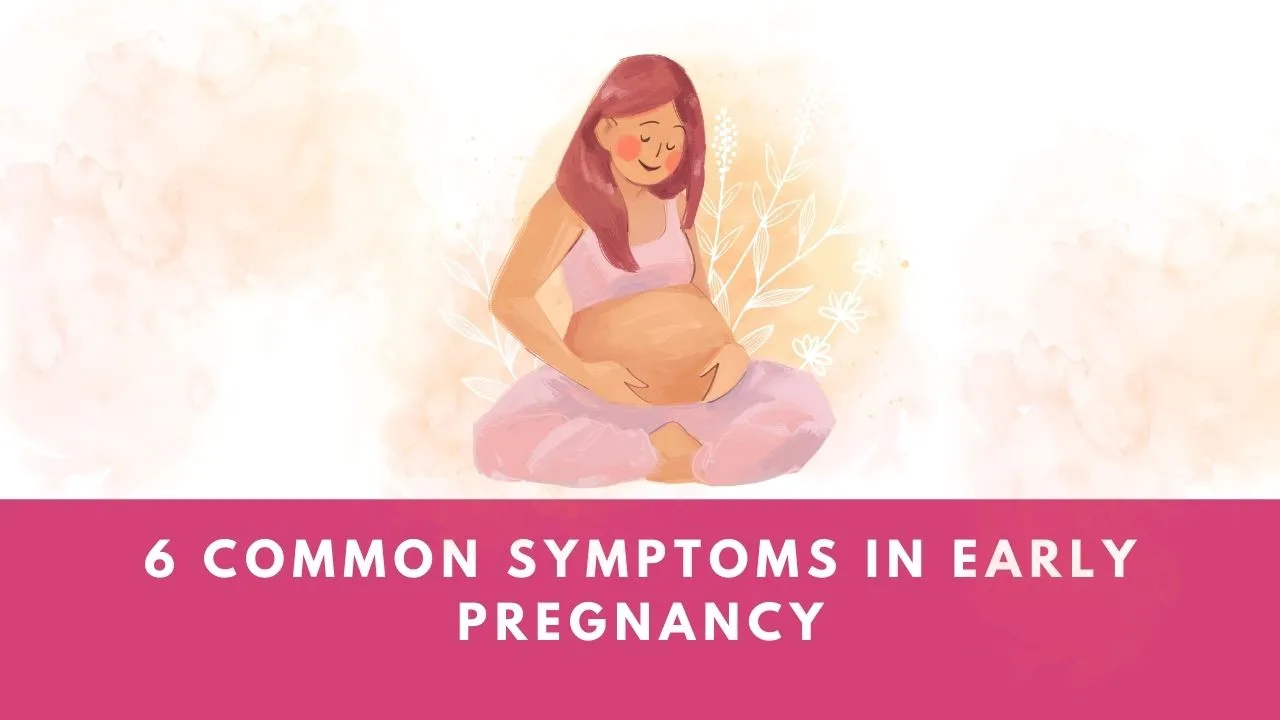pregnancy is a very happy and fortunate thing. Most pregnant mothers are very excited when they find out that they are pregnant. When they think about becoming a mother, they think about what will happen after the child is born. However, that is pregnant The mother must first make sure she is safe. Early pregnancy. Therefore, it is necessary to understand what common diseases and symptoms occur in pregnant mothers in early pregnancy.
1. Bleeding in early pregnancy
Some pregnant mothers bleed when the fertilized egg implants. Generally, 6 to 7 days after intercourse, the fertilized egg has entered the uterus and the placenta has implanted on the inner wall of the uterus. Minor blood streaks and leucorrhea may occur. Come together, this is first trimester bleeding. Bleeding is very minor and appears as red blood spots or pink blood spots and streaks of blood. At this time, the pregnant mother does not feel unwell and rarely suffers from stomach pain, which usually disappears after two to three days.

If the pregnant mother notices that the bleeding is larger and symptoms of abdominal pain appear, it is not necessarily implantation bleeding. The pregnant mother has to go to the hospital for treatment. It may be another bleed or a fallopian tube bleed pregnancy Bleeding.
3 to 4 days after implantation of the fertilized egg, a weakly positive result can be determined with a pregnancy test Paper. At this time, the pregnant mother should not take any medications or injections, lift heavy objects, or do strenuous exercises. She needs to stop smoking and drinking. . After about 20 days, the small fetal sac can be seen on the B-ultrasound.
2. Abdominal pain in early pregnancy
Some pregnant mothers experience dull abdominal pain and mild abdominal bloating in the early stages of pregnancy. This is due to changes in progesterone levels in the body, abdominal cramps that cause pain, and loose ligaments and stretching of the abdominal muscles that can also cause pain. If there is only mild pain and no other symptoms appear, pregnant mothers have nothing to worry about. Stomach pain caused by this type of ligament stretching occurs throughout pregnancy. This is normal physiological pain.

Some pregnant mothers experience occasional pain in the left lower abdomen in the early stages of pregnancy, but this quickly disappears. It can be gastrointestinal problems caused by eating the wrong food or having a cold. The abdominal pain and the feeling of having to have a bowel movement are caused by intestinal cramps.
However, if you have abdominal pain, especially paroxysmal lower abdominal pain or regular abdominal pain, lower back pain or pelvic pain, and then light bleeding or brown discharge or other obvious feeling in the abdomen occurs, you should go to the hospital in time. A threatened abortion can cause symptoms such as abdominal pain and bleeding. If you have severe pain in the lower abdomen on one side, accompanied by bleeding or fainting, you may have an ectopic pregnancy.
In some pregnant mothers, the corpus luteum of the ovary forms in the early stages of pregnancy, causing ovarian cysts to twist or rupture, and uterine fibroids can also cause persistent severe pain in the lower abdomen. If the mole in the uterus grows and expands too quickly, paroxysmal abdominal distension or dull pain accompanied by vomiting will also occur. Abdominal pain can also occur in early pregnancy, which can be complicated by appendicitis and accompanied by fever, nausea and vomiting. The pain can then shift to the right lower quadrant. If you have the above pain symptoms, you must go to the hospital in time.
3. Back pain in early pregnancy
Some pregnant mothers also experience symptoms of back pain in early pregnancy. This is because under the action of estrogen and progesterone, the pregnant mother’s joint ligaments relax, and the uterus gradually rises and tilts forward, which puts a strain on the pregnant mother’s back ligaments and muscles. Lower back pain caused by stretching is usually painful when standing for long periods of time or walking a lot. It is relieved or disappears after resting. This is a normal phenomenon.

However, if the pain is severe and lasts a long time, it may be lower back pain caused by an ectopic pregnancy or a threatened abortion. This is also accompanied by a sinking feeling in the stomach and a slipping feeling in the waist. At this point, you should go to the hospital immediately.
4. Diarrhea in early pregnancy
Generally, pregnant mothers do not suffer from diarrhea but rather from constipation. If a pregnant mother has diarrhea in early pregnancy, it is necessary to find out the cause. Some may be infected with viral diarrhea or eat unhygienic food. If you have severe diarrhea, you should consult a doctor in a timely manner. If diarrhea is severe in early pregnancy, it affects fetal development and causes loss of water, electrolytes, potassium ions, and calories. Additionally, diarrhea in early pregnancy can be a sign of miscarriage, so pregnant mothers should be concerned.

Pregnant mothers should also consume more foods containing vitamin C at this time to increase appetite and aid digestion. Be careful to keep your stomach warm and avoid catching a cold. Do not take medicines indiscriminately as this may cause fetal abnormalities or miscarriage.
5. Dizziness in early pregnancy
Some pregnant mothers experience dizziness and nausea in early pregnancy. This is mainly because the body needs more nutrients after pregnancy. When insufficient nutritional supplements, anemia, hypotension and hypoglycemia lead to insufficient blood supply to the brain, ischemia and hypoxia, dizziness occurs. Especially pregnant mothers with severe morning sickness may experience symptoms of low blood sugar such as dizziness, fatigue, heart palpitations, etc. as they eat less and vomit more frequently. Therefore, pregnant mothers are recommended to go to the hospital to have their blood test and blood pressure checked to determine whether there is anemia or high blood pressure.

What should I do if I feel dizzy in early pregnancy?
If dizziness occurs after pregnancy, the pregnant mother should not work, get enough sleep, rest well, do not exercise too much, strengthen the diet accordingly, and eat more protein-rich foods such as fish, meat, eggs, milk, beans etc. You can also supplement iron and vitamins and eat more whole grains, dates, peanuts and red beans. Adjust blood pressure to normal immediately.
6. Increased leukorrhea in early pregnancy
Pregnant mothers will find that leukorrhea increases in early pregnancy. This is normal because estrogen levels increase in the pregnant mother’s body and leukorrhea also increases. Pregnant mothers should not buy some medications just because there is too much leukorrhea. If you notice odor or bloodshot eyes, you should go to the hospital for treatment.





